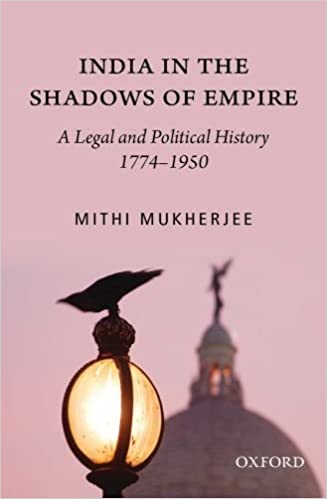India in the Shadows of Empire: A Legal and Political History 1774-1950
This book offers a path-breaking and comprehensive new interpretation of modern Indian political, legal, intellectual, and constitutional history. It explains the complex and seemingly contradictory nature of the postcolonial Indian polity by locating it an alternative historical narrative of the British Empire in India and India’s struggle for independence. It pursues this narrative along two major trajectories. On the one hand, it focuses on the role of the category of “justice” and imperial judicial institutions and practices in the making of both the British Empire and the anti-colonial movement under the Congress, with the lawyer as political leader.
On the other hand, it offers a novel interpretation of Gandhi’s non-violent resistance movement as being different from the Congress. It shows that the Gandhian movement, as the most powerful force largely responsible for India’s independence, was anchored not in western discourses of political and legislative freedom but rather in indigeneous traditions of renunciative freedom, with the renouncer as leader.
